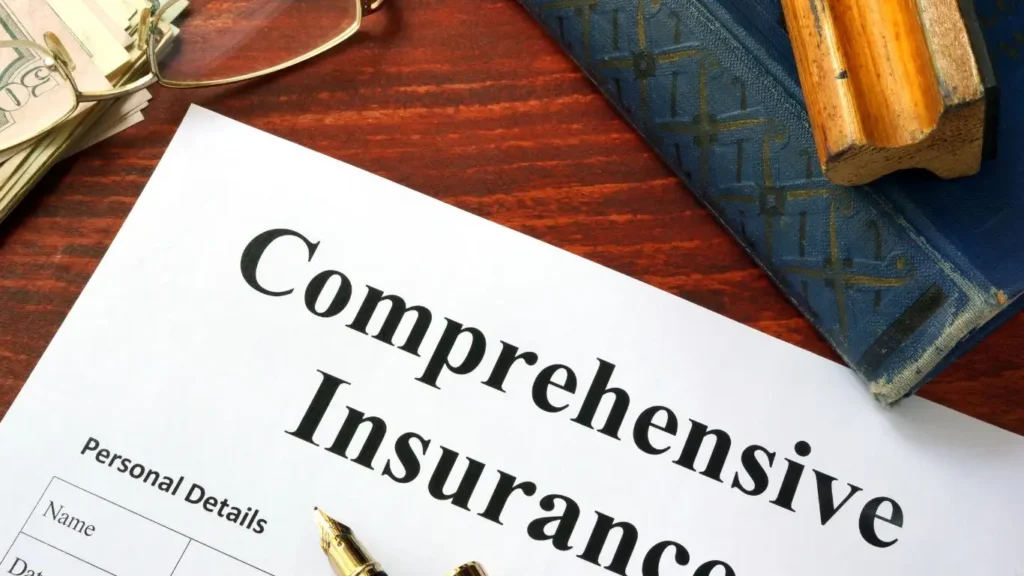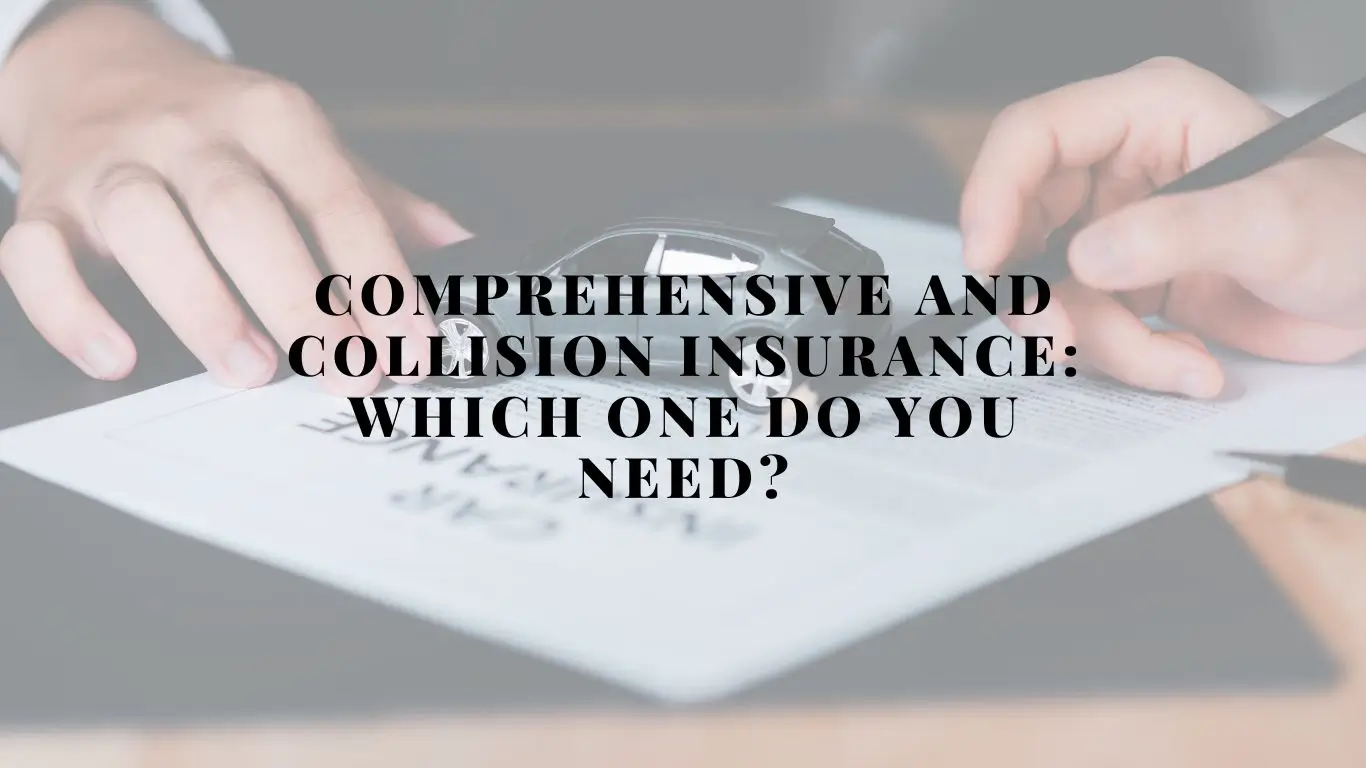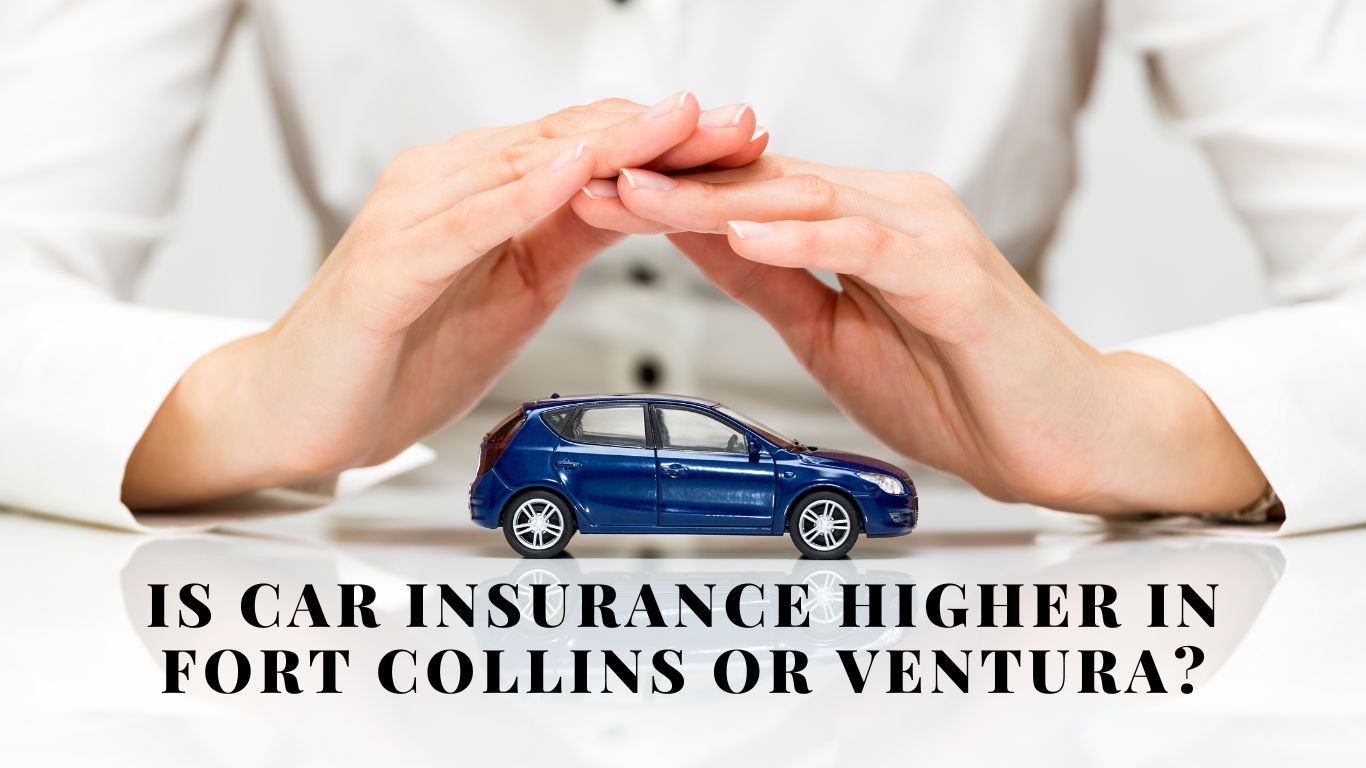In the world of auto insurance, “Comprehensive Insurance” is an important option that often raises many questions about your protection. Is it really worth your money? This blog post is to clear all these doubts of yours.
Here, we’ll learn what comprehensive insurance is, what it covers, what factors affect its cost, and what its pros and cons are. Plus, you’ll find tips that can help lower your insurance costs.
If you live in the US and are looking for car insurance options, this article will prove to be a complete guide for you.
What is Comprehensive Insurance?

Comprehensive Insurance is a type of vehicle insurance that covers damages caused by events other than accidents.
This is also often referred to as “other-than-collision” insurance. This means it protects your vehicle against damage caused by natural calamities, theft, fire, flood, animal collisions, and vandalism.
For example, if your vehicle is parked in a parking lot and a tree falls on it, comprehensive insurance will cover the cost of its repair.
Key Features of Comprehensive Insurance
- Complete Security: Comprehensive insurance protects your car against a variety of damages, such as natural disasters (earthquakes, storms), man-made incidents (vandalism, fire), and accidents involving animals.
- Deductible Options: There is an option of Deductible, which decides the amount that will have to be paid out of your pocket during the insurance claim. The lower the deductible, the higher the premium.
- Apart from Collision Insurance: Comprehensive insurance is different from collision insurance. Collision insurance covers the cost of repairing the vehicle if the vehicle collides with another vehicle or object, while comprehensive insurance focuses on other risks.
- Coverage of Theft and Vandalism: If your car is stolen or is the victim of some form of vandalism, comprehensive insurance covers the cost of its repair or replacement.
- Provides Financial Stability: This insurance provides financial protection to protect against large unexpected costs.
Do You Need Comprehensive Insurance?
If you live in a place where the risk of natural disasters is high, or your car has a high value, taking out comprehensive insurance may be a wise decision. This is an important step to protect your assets and financial stability.
Thus, comprehensive insurance provides a comprehensive protection cover to protect your vehicle from risks that are not covered by collision insurance alone.
What Does Comprehensive Insurance Cover?
Comprehensive Insurance protects your vehicle from risks that are not covered by collision insurance. It covers losses caused by unexpected events other than accidents. Here is a list of the main things that are covered under comprehensive insurance:
What is Covered Under Comprehensive Insurance?
- Natural Disasters: Covers damage to the vehicle caused by floods, earthquakes, storms, and other natural calamities.
- Theft and Sabotage: If your car is stolen or a victim of vandalism, the cost of its repair or replacement is covered.
- Animal Clash: Also covers damage to the vehicle caused by a collision with an animal, such as a collision with a deer or other animal.
- Fire and Explosion: Damage caused to the vehicle due to fire or explosion is compensated.
- Falling Objects: Comprehensive insurance provides coverage if a tree, pole, or other heavy object falls on the vehicle.
- Glass Damage: This insurance also covers broken windshields, windows, or other glass pieces.
What is Not Covered Under Comprehensive Insurance?
Although comprehensive insurance is a strong blanket of protection, it does not cover every situation. Here are some major exceptions:
- Normal Wear and Tear: General vehicle repairs or maintenance, such as tire replacement or brake repair, are not covered under comprehensive insurance.
- Driver Negligence: If the damage is caused by the driver’s negligence, such as drunk driving, the insurance claim may be denied.
- Personal Belongings: This insurance does not cover personal items kept inside the car, such as a laptop or phone.
- Wars and Nuclear Disasters: Damage caused by war, insurgency, or nuclear disaster is not covered under comprehensive insurance.
- Disadvantages During use: If the vehicle is being used for racing, commercial use, or unauthorized purposes, it will not be covered.
Cost of Comprehensive Insurance
The cost of comprehensive insurance depends on many factors. It is important to know how insurance premiums are determined and how you can reduce them. Here we will discuss the key factors and tips that can affect the cost of your comprehensive insurance.
Factors Affecting the Cost of Comprehensive Insurance
- Vehicle Model and Price: Expensive and luxury vehicles can increase insurance premiums as they have higher repair and replacement costs.
- Your Location: If you live somewhere where the risk of natural disasters, theft, or vandalism is high, your insurance costs may increase.
- Deductible: Deductible is the amount you pay from your own pocket during the claim. Choosing a lower deductible increases the premium, while choosing a higher deductible lowers the premium.
- Vehicle Usage: How much your vehicle is used and for what purpose (e.g. personal, business or racing) also affects the cost.
- Insurance History: Insurance companies may offer you a discount if you have a claim-free history.
- Insurer’s Policies: Different insurance companies offer different premiums and coverage options.
Tips to Lower Your Comprehensive Insurance Premiums
- Choose a Higher Deductible: If you’re willing to take the risk, choosing a higher deductible can lower your monthly premium costs.
- Bundled Insurance Policy: Bundling multiple policies from the same company, such as auto and home insurance, may yield discounts.
- Vehicle Safety Devices: Installing anti-theft devices and modern security systems can reduce your insurance costs.
- Maintain Claim-Free History: Insurers may offer you a loyalty discount if you do not make a claim for a long period of time.
- Compare Insurance: Compare insurance premiums from different companies and choose the most affordable plan for you.
- Maintain Vehicle Condition: Regular care and maintenance of your vehicle can keep its insurance costs low.
- Improve Driving Record: A clean driving record convinces insurers that you are a low-risk driver, which can lead to lower premiums.
Advantages and Disadvantages of Comprehensive Insurance

Comprehensive Insurance is an important part of vehicle insurance, but it is important to understand its advantages and disadvantages before taking it. This section will clarify both these aspects for you.
Advantages of Comprehensive Insurance
- Protection From Natural Disasters: This insurance covers damage caused to the vehicle due to unexpected events like flood, earthquake, storm, and fire.
- Coverage of Theft and Vandalism: If your car is stolen or the victim of vandalism, comprehensive insurance covers the cost of repair or replacement.
- Coverage of Animal Conflicts: If there is damage to the vehicle due to collision with an animal, this insurance covers that situation also.
- Protection From Falling Objects: This also covers repair of damage caused by tree branches, poles, or other heavy objects falling on the vehicle.
- Peace and Financial Security: Comprehensive insurance provides financial stability to avoid huge repair costs due to unexpected events.
- Claim-Free Bonus: If you do not make any claims in a year, the insurer may offer you a discount on the premium.
Disadvantages of Comprehensive Insurance
- High Premium Cost: The cost of comprehensive insurance can be higher than other types of insurance such as collision insurance, especially for expensive vehicles.
- Obligations of Deductible: During the claim, you have to pay the deductible first, which can impose additional financial burden.
- Does Not Cover Normal Wear and Tear: Routine repairs to the vehicle, such as tire replacement or engine maintenance, are not covered under comprehensive insurance.
- Cost Despite Low Usage: Even if your vehicle is underutilized, you still have to pay the premium.
- Exception of Certain Events: This insurance does not cover damage caused by war, rebellion, or driver negligence (such as drunk driving).
- No Coverage of Personal Belongings: Personal items kept in the car, such as a laptop or other valuable items, are not covered under insurance.
Conclusion
Comprehensive Insurance is an important option for vehicle protection, which protects against natural calamities, theft, vandalism, and other unexpected events.
However, it is important to keep in mind its costs, deductibles, and exclusions. If you want complete protection for your car and want to avoid potential financial risks, comprehensive insurance can be a wise investment.



